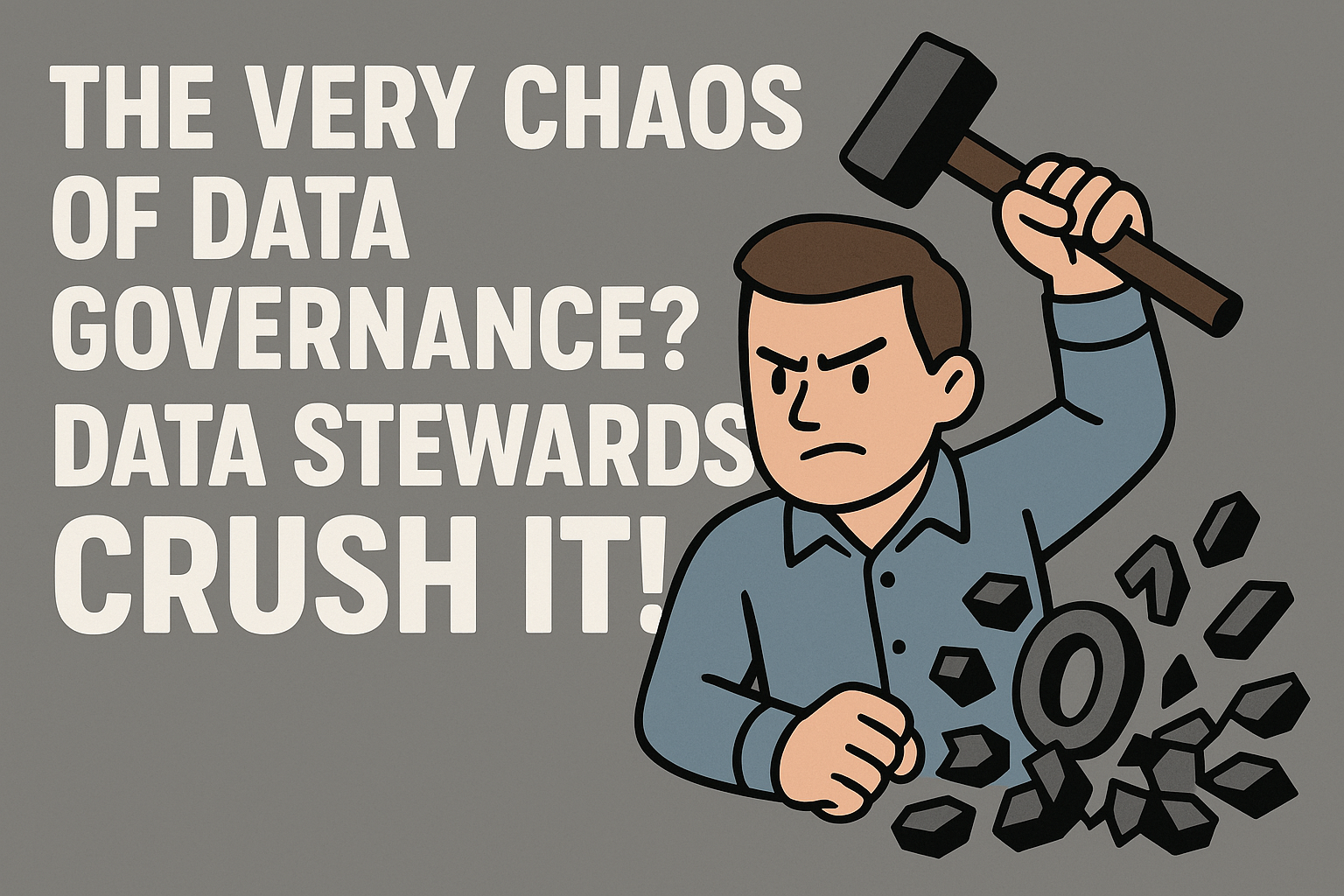A Data Steward is not just a data cleaner—they play a crucial role in executing data governance strategies, ensuring data integrity, compliance, and usability across the organization. However, assigning the right person and providing the right level of authority is essential for making data stewardship effective. Let’s explore how T Company structures its Data Stewardship Program and learn best practices for assigning, empowering, and managing data stewards in an organization.
1. Who Should Be a Data Steward? Do They Need to Be Experienced?
Q: Does a data steward always need to be highly experienced?
Answer: “Experience is helpful, but not always necessary.”
✔ Advantages of an Experienced Data Steward
- Deep domain knowledge allows them to spot data inconsistencies quickly.
- Higher credibility within the organization makes cross-department collaboration easier.
- Can explain and enforce governance policies more effectively.
✔ When Experience Might Not Be an Advantage
- They may lack technical expertise in new data management tools or AI-driven analytics.
- Resistance to adopting modern automation tools.
- Younger employees may be more comfortable handling complex data tools and systems.
✔ Conclusion
- More important than experience is an understanding of data governance, communication skills, and problem-solving abilities.
- Some organizations may assign tech-savvy employees with strong analytical skills rather than only choosing senior employees.
2. How Much Authority Should a Data Steward Have?
Q: Should a data steward have full authority over data?
Answer: “They need enough authority to do their job effectively but not so much that they create governance risks.”
✔ Key Responsibilities & Authority Levels for a Data Steward
| Authority Type | Why It’s Important | How It Works |
| Data Editing Authority | Allows them to correct errors and eliminate duplicates. | Can modify data within predefined rules but requires approval for major changes. |
| Data Standardization Authority | Ensures consistent data entry and formatting. | Can define data input guidelines (e.g., “Always enter names as First-Last format.”). |
| Data Quality Monitoring | Helps track data health and report issues. | Can access data quality dashboards, flag errors, and request fixes. |
| Interdepartmental Coordination | Facilitates cooperation between IT, marketing, finance, and operations. | Works closely with cross-functional teams to resolve issues. |
| Reporting & Decision-Making Participation | Ensures data governance aligns with business goals. | Attends data governance meetings, submits quality reports, and makes recommendations. |
✔ Why Authority Should Be Balanced
- Giving full editing access could lead to data conflicts or security risks.
- Stewards should have control over data quality and governance rules but not over business-critical decisions.
- Final governance policy decisions should be approved by a Data Governance Committee or leadership team.
✔ Conclusion
- Data Stewards should have structured authority over data quality, compliance, and monitoring.
- However, major policy changes should require approvals from higher governance bodies.
3. Who Should Assign and Oversee Data Stewards?
Q: Who is responsible for assigning data stewards and defining their authority?
Answer: “It depends on the organization’s structure and priorities.”
✔ Key Decision Makers in Appointing a Data Steward
| Role | Best for… | How It Works |
| CIO (Chief Information Officer) | IT-driven organizations | Ensures data governance integrates with IT infrastructure. |
| CDO (Chief Data Officer) | Data-centric organizations | Focuses on data strategy, quality, and security. |
| Data Governance Committee | Large organizations with multiple departments | A cross-functional team ensures alignment across business units. |
✔ Examples
- A bank may assign the CIO to appoint stewards since data is closely linked to IT security.
- A multinational corporation may let the CDO oversee data stewards to ensure data-driven decision-making.
- A large retailer may have a Data Governance Committee, involving IT, marketing, and finance, to ensure data consistency across departments.
✔ Conclusion
- If IT is central to the business, CIOs typically assign stewards.
- If data management is a business priority, CDOs take the lead.
- If many departments need coordination, a committee approach is best.
Final Summary: The Best Way to Manage Data Stewards
1️ Who Should Be a Data Steward?
✔ Experience is helpful, but strong analytical skills and technical adaptability are more important.
✔ Younger, tech-savvy employees might perform better than senior employees who are resistant to new tools.
2️ How Much Authority Should a Data Steward Have?
✔ They should have control over data quality, error resolution, and standardization.
✔ They should not make independent decisions on business rules or system-wide changes.
3️ Who Should Assign and Oversee Stewards?
✔ CIOs assign stewards in IT-driven organizations.
✔ CDOs assign them in data-focused organizations.
✔ Data Governance Committees assign them in large companies requiring cross-functional coordination.

